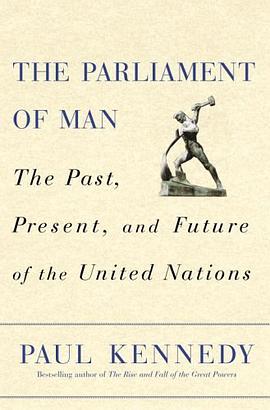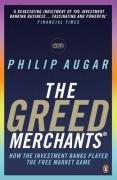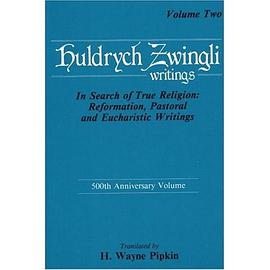

具體描述
“With all its defects, with all the failures that we can check up against it, the UN still represents man’s best-organized hope to substitute the conference table for the battlefield.”
–Dwight D. Eisenhower, 1961
The signing of the United Nations Charter in 1945 was an unprecedented development in the history of humankind. For the first time, the world’s most powerful sovereign nation states came together to create an autonomous organization designed to, in the Charter’s words, “save succeeding generations from the scourge of war [and] reaffirm faith in fundamental human rights.” Sixty years later, the UN still doggedly pursues that mandate, albeit not without difficulty and certainly not without criticism.
In The Parliament of Man, the distinguished scholar Paul Kennedy gives a thorough and timely history of the United Nations that explains the institution’s roots and functions while also casting an objective eye on the UN’s effectiveness as a body and on its prospects for success in meeting the challenges that lie ahead.
Building on expertise he gained in drafting official reports for the UN’s fiftieth anniversary on how to improve the organization’s performance, Kennedy makes sense of the many commissions and committees, and how its six main operating bodies–General Assembly, Security Council, Economic and Social Council (UNESCO), Trusteeship Council, Secretariat, and International Court–operate and interact. Citing examples from the UN’s history, he shows how the five permanent members of the Security Council–the United States, the United Kingdom, Russia, China, and France–on numerous occasions overcame political antagonisms to spearhead military supervision of aid in humanitarian crises, and how lack of cooperation among the great powers has hamstrung such initiatives as the control of greenhouse gas emissions and exacerbated the deleterious effects of globalization on developing nations’ economies.
As a body, the UN emerges here for what it is: fallible, human-based, oftentimes dependent on the whims of powerful national governments or the foibles of individual senior UN administrators, but utterly indispensable. In The Parliament of Man, Kennedy ably proves that “it is difficult to imagine how much more riven and ruinous our world of six billion people would be if there had been no UN social, environmental, and cultural agendas–and no institutions to attempt to put them into practice on the ground.”
著者簡介
圖書目錄
讀後感
評分
評分
評分
評分
用戶評價
聯閤國 國際史
评分聯閤國 國際史
评分聯閤國 國際史
评分聯閤國 國際史
评分聯閤國 國際史
相關圖書
本站所有內容均為互聯網搜索引擎提供的公開搜索信息,本站不存儲任何數據與內容,任何內容與數據均與本站無關,如有需要請聯繫相關搜索引擎包括但不限於百度,google,bing,sogou 等
© 2025 book.quotespace.org All Rights Reserved. 小美書屋 版权所有




















